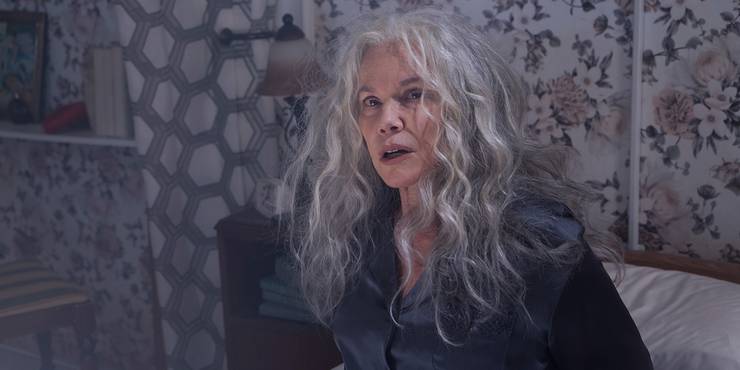
Barbara Hershey turns up in The Manor somewhat as feisty and subversive as her youthful persona in Boxcar Bertha nearly a century ago - a seventy year old reluctantly confined by her family to the nursing home in question, following a mild stroke. Increasingly convinced that there's something sinister going on way beyond just over-medicating the residents to shut them up and keep them docile and compliant, the instinctive rebel in Judith is on the case. Or is she?
And that's where this chilling forensic elder care home
scrutiny, dubbed here as 'death row' takes a sudden, unpredictable turn
into a different sort of horror spree - touching on life under
capitalism. And that masterful storyteller, writer/director Axelle
Carolyn who originally hails from Brussels, would appear to infuse this
gothically shrouded narrative with a lot more than European
cinematic sensibility. Say, the increasingly dark descent of US society
into economic and psychological decline and desperation.
As for Judith's rebel instincts in a confrontation with her fascist
leaning, progressively freaky surroundings - though Barbara Hershey in
this instance is ultimately no Jack Nicholson, there seems to be a
refreshing trend in movies lately, of elderly female action heroes. Last
year, for instance, Dianne Wiest stood up as a defiant victim of
retirement home physical and emotional abuse along with financial
exploitation, in 'I Care A Lot' - while Cicely Tyson, who just passed
away earlier this year, risks her life as spunky whistleblower in her
nineties, exposing a criminal enterprise holding the elderly hostage
tied up in a basement for their monthly social security checks, in Tyler
Perry's A Fall From Grace.
And getting back to The Manor, though some reactions may range from
bewilderment to disappointment regarding Judith's ultimate behavior -
and without giving too much away - let's just say that under capitalism,
it's inevitably a given that enriching oneself is to the expendable, comparable
detriment of others in US society. And which may be said to lend
significant, ironically realistic if brutal existential weight, to this
otherwise fantasy horror tale.
Prairie Miller
